About Us
The Disaster and Community Crisis Center (DCC) at the University of Missouri
The Disaster and Community Crisis Center (DCC) at the University of Missouri focuses on enhancing preparedness, recovery, and resilience in children, families, schools, and communities affected by disaster and community crisis. DCC is an interdisciplinary center with expertise in mental and behavioral health, social work, public health, communication, mass media, social media, and journalism.
DCC provides national expertise and resources for intervention, training, consultation, and technical assistance related to disasters and community crises. DCC conducts research to better understand disaster and community crisis risks, effects, and response and recovery strategies.
DCC’s mission includes providing national disaster and community crisis leadership, increasing disaster public awareness, developing and implementing disaster interventions, creating disaster training protocols, generating disaster resources, conducting high quality disaster research, partnering with service providers and disaster responders, and collaborating with community partners on disaster issues.
In June 2015, DCC changed its name from the Terrorism and Disaster Center (TDC) to the Disaster and Community Crisis Center (DCC).
In October 2012, DCC received funding was awarded 2.4 million dollars over 4 years by the U.S. Substance Abuse and Mental Health Services Administration (SAMHSA) to be a Category II Center in the National Child Traumatic Stress Network (NCTSN).
Contact us: email houstonjb@missouri.edu / phone 573.882.3327
Faculty and Staff
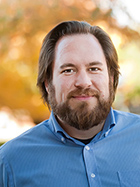
- J. Brian Houston, PhD
- Director
- houstonjb@missouri.edu
-
J. Brian Houston is Chair and Associate Professor in the Department of Communication at the University of Missouri and is Director for the Disaster and Community Crisis Center (DCC) at the University of Missouri.
Houston's research focuses on communication at all phases of disasters and on the mental health effects and political consequences of community crises. Recent and current research projects have examined the impact of media coverage of terrorism on children and adults, the role of new media during disasters, and the capacity for using information communication technologies to increase community resilience. These projects are located at the intersections of the literatures addressing disasters, communication, media, public health, mental health, and political socialization.
Houston's work has been supported by the Substance Abuse and Mental Health Services Administration (SAMHSA), National Institute of Mental Health (NIMH), National Institute for Nursing Research (NINR), U.S. Department of Veterans Affairs (VA), and the National Consortium for the Study of Terrorism and Responses to Terrorism (START).
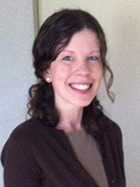
- Jennifer First, PhD, LMSW
- Faculty Fellow – Disaster Mental Health
- jennifer.first@maine.edu
-
Jennifer First is a Disaster Mental Health Faculty Fellow at the Disaster and Community Crisis Center (DCC). Jen earned her MSW and PhD from the School of Social Work at the University of Missouri and she is currently an Assistant Professor at the School of Social Work at the University of Southern Maine in Portland. Her scholarship is committed to improving the mental health and wellbeing of individuals and communities experiencing disaster and community crisis. As a practitioner and researcher, Jennifer has led and collaborated in numerous projects throughout the United States aimed at developing, implementing, and evaluating mental health resources in communities facing disasters and environmental challenges.

- Cynthia M. Frisby, PhD
- Faculty Fellow – Strategic Communication and Media
- frisbyc@missouri.edu
-
Cyndi Frisby is Associate Professor in the University of Missouri School of Journalism. She is a nationally recognized authority on media portrayals of minorities, athletes, women and teens. Among other topics, Frisby studies mass shootings, communities in crises, as well as race and gender representation in sports. She has also investigated the sources of American viewers’ fascination with reality television and the effects of idealized images on perceptions of body esteem among African-American women. Additionally, Frisby provides research-based decision making assistance to health organizations developing communication campaigns for underserved populations. She conducted two separate studies focused on effective messaging on breast cancer prevention among African-American women. Frisby’s enthusiasm for her research is reflected clearly in the classroom, where she has won numerous awards for excellence in teaching.
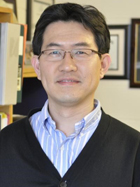
- Mansoo Yu, PhD
- Faculty Fellow – Social Work
- yuma@missouri.edu
-
Mansoo Yu is Associate Professor and the PhD Program Director in the School of Social Work. Yu’s research has been focused on health disparities and the interconnections of mental health, physical health, and health risk behaviors such as substance use. Each of these components of a person’s life impacts the others. Yu compares different segments of populations, particularly vulnerable and disadvantaged populations, to identify problems and issues around these aspects of people’s lives. His goal is to generate scientific evidence that practitioners in the field can use to better meet the needs of their clients.
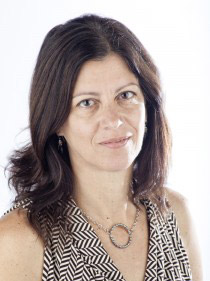
- Katherine Reed, PhD
- Faculty Fellow – Trauma-Informed Journalism
- reedkath@missouri.edu
-
Katherine Reed is Trauma-Informed Journalism Director for DCC and is an Associate Professor on the print and digital faculty at the Missouri School of Journalism and the public safety and health editor at the Columbia Missourian. Katherine was a 2011 Academic Fellow for the DART Center for Journalism and Trauma and teaches a course at the University of Missouri School of Journalism on “Covering Traumatic Events.”
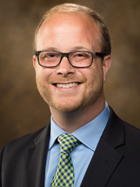
- Matthew L. Spialek, PhD
- Faculty Fellow – Disaster Communication
- mspialek@uark.edu
-
Matthew L. Spialek, PhD, is Assistant Professor in the Department of Communication at the University of Arkansas. His research examines how individuals build relationships within communication ecologies in order to foster the civic life, public health, and resilience of communities that have or are at risk of experiencing crises and disasters.
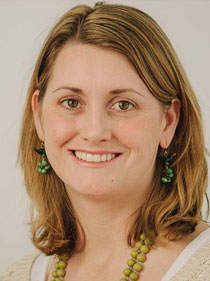
- Mildred F. (Mimi) Perreault, PhD
- Faculty Fellow – Strategic Communication, Science Communication, and Media
- PERREAULT@mail.etsu.edu
-
Mildred F. (Mimi) Perreault is an Assistant Professor at the Department of Media and Communication at East Tennessee State University. Perreault holds a doctorate of philosophy from the University of Missouri School of Journalism. Her research focuses disaster communication, environmental crises, crisis narratives, local news coverage of natural disasters and the strategic communication practices of journalists. Perreault began her professional career as a journalist and public relations professional in Washington, DC, and South Florida.
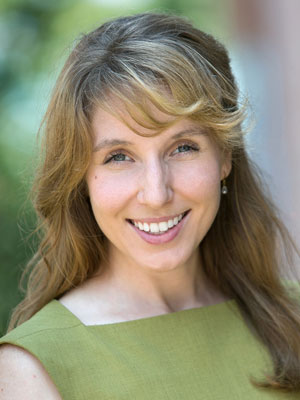
- Megan Schraedley, PhD
- Faculty Fellow – Organizational Advocacy, Food Security
- makmh4@mail.missouri.edu
-
Megan Schraedley’s research focuses on the communicative struggle for organizational meaning, and ultimately the path to sustainable local and global solutions to food insecurity as individuals negotiate overlapping and competing language. She has been trained in qualitative methodologies including case study, grounded theory, and ethnography. Her work emphasizes deconstructing the ways humans communicatively organize around food and critiquing how food systems and communication organize humans.
Fellows
Current Graduate Fellows

- Chandrika Collins

- Ernest Eshun
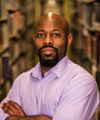
- Virgil Hayes
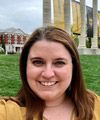
- Lindsey Vazquez
Past Fellows

- Scotti Branton
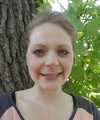
- Megan Carnahan

- Surin Chung

- Cat Cojocaru
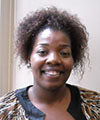
- Joy Cox
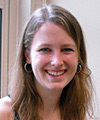
- Heidi Czlapinski
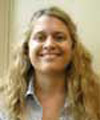
- Molly Greenwood

- Katie Harbinson

- Joshua Hawthorne

- Megan Koch
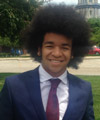
- Tyger Ligon

- McKenzie Lockett

- Noelle Mack

- Alise Murawski
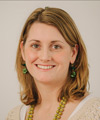
- Mimi Wiggins Perreault
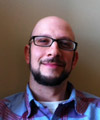
- Bryon Seboldt

- Sarah Smith-Frigerio

- Mary Sorenson

- Matt Spialek
